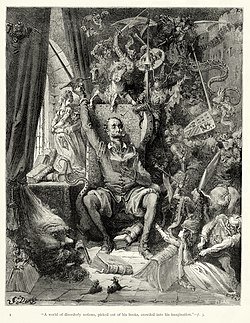General
Here’s a general introduction: I’m a professor and occasionally an opinion journalist. My writing on various subjects has appeared in The New York Times, The Atlantic, The New Republic, The Washington Post, and other venues. I also do football (soccer) analysis as a hobby; my Substack focuses on Tottenham Hotspur, the English Premier League club I support with irrational degrees of loyalty and exuberance. My professional research is mostly historical in nature, but I also do computational and quantitative analysis to understand patterns and trends in large amounts of digitized text.
I live and work in Maine, USA, when I’m teaching, and in London and Cambridge, UK, where much of my research is based, between terms and in the summer. I lived in England full-time for several years as a doctoral student at Oxford before moving to Galway, Ireland, then back to the US. I returned to England full-time in 2018-19 as a visiting scholar in History and Philosophy of Science at Cambridge.
I was an NCAA Division I All-Conference middle-distance runner in college and one of the relatively few athletes to earn IC4A All-East honors in both the 800m sprint on the track and the 8000m cross country race. I don’t race anymore, but still run. I’ve also played football (soccer) my whole life, and continue to do so in Maine, London, and Cambridge. It’s a great way to connect with people and build community around the beautiful game. For my sabbatical year (AY2025-26) I’m playing for King’s College F.C. in the Cambridge University Association Football League (CUAFL).
Academic
In case you’re interested in my academic research and teaching, I say more about that below:
I'm the NEH / Class of 1940 Distinguished Associate Professor of the Humanities at Colby College and affiliated faculty in the Science, Technology, and Society (STS) Department.
I’m based in the English Department at Colby and chaired the STS Department for four years. My research and teaching fall primarily in the category of what Lorraine Daston and Mary Poovey call ‘historical epistemology,’ which Ian Hacking neatly describes in The Emergence of Probability as understanding ‘the forgotten formation and evolution of core ideas that run through our notions of knowledge and argument: truth, objectivity, evidence, information, probability, proof, experience, experiment, wonder, curiosity, ignorance, classification.’ I’ve also started building a research program in the computational and quantitative study of literature.
I’m especially interested in examining issues of methodology, epistemology, and the organization of knowledge through the study of fiction (where ‘fiction’ is sometimes an eighteenth-century novel and sometimes a scientific model). Accordingly, my most recent work has been in the area of philosophy of fiction, focused on how we draw and formalize the line of demarcation between ‘fiction’ and ‘nonfiction,’ which turns out to be harder than it seems!
Publication Areas
Here are some of my areas of research [with representative publications in each area]:
PHILOSOPHY OF FICTON: AI [“LLM Outputs Are Fictions”]
PHILOSOPHY OF FICTION: EMPIRICISM [Empirical Knowledge in the Eighteenth-Century Novel]
METHODOLOGY: EXPLANATION [“Explanation Beyond Interpretation”]
HISTORY AND PHILOSOPHY OF SCIENCE [“Abraham Cowley against Bacon’s ‘Idols of the Mind’”]
LITERATURE AND SCIENCE: HISTORY OF DATA [“From Writing Lives to Scaling Lives”]
LITERATURE AND SCIENCE: HISTORY OF INFORMATION [“Information and Credibility in Journal of the Plague Year”]
LITERATURE AND PHILOSOPHY: SOCIAL EPISTEMOLOGY [“Sense and Sensibility as Social-Epistemic System”]
LITERATURE AND PHILOSOPHY: LEGAL THEORY OF CONSENT [“Fanny Hill and the Legibility of Consent”]
HISTORY OF TECHNOLOGY [British Literature and Technology, 1600-1830}
LITERATURE AND POLITICAL THEORY [A World of Disorderly Notions: Quixote and the Logic of Exceptionalism]
